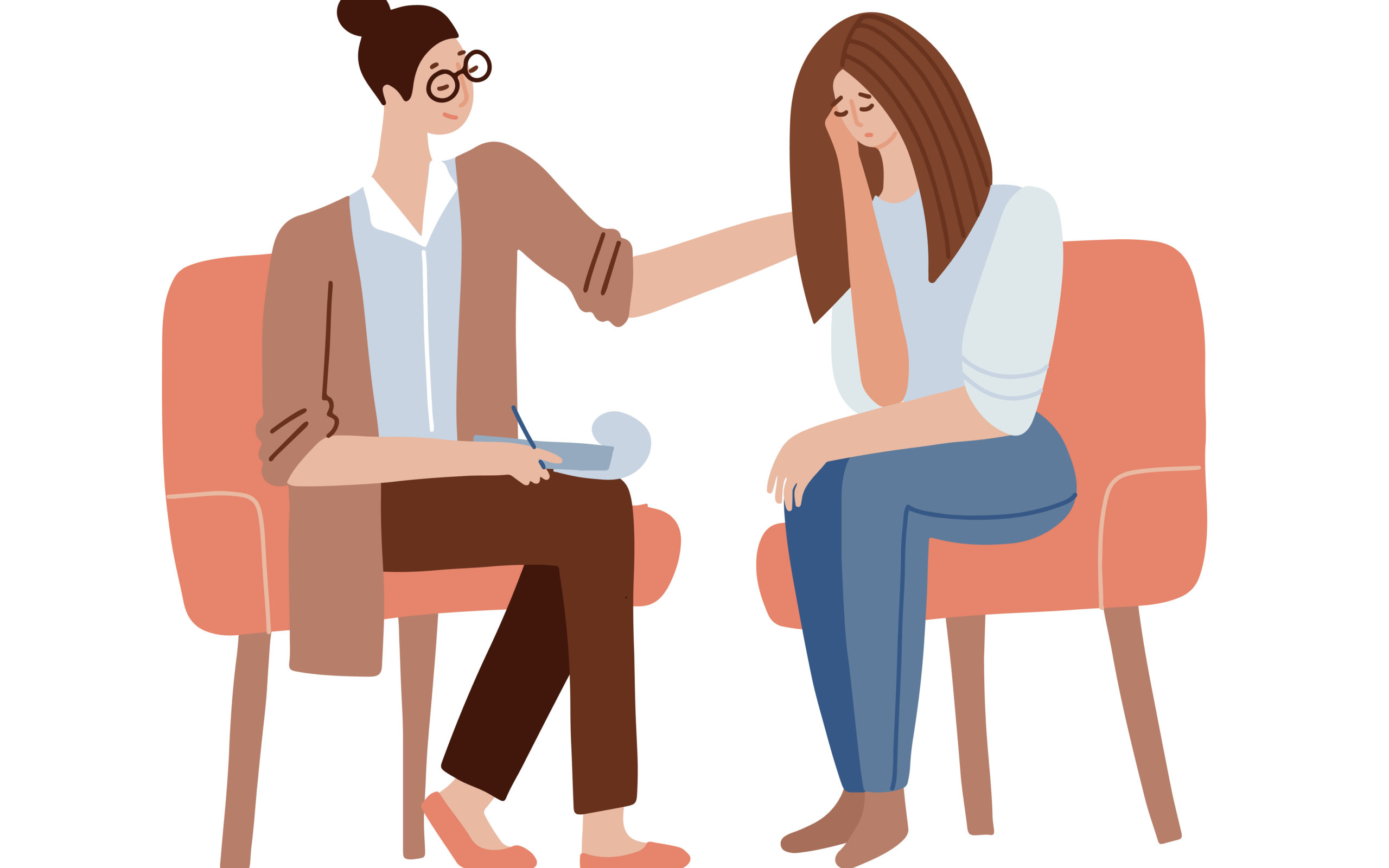Your Path to Healing: Insights from the Best Psychologist in Delhi
Your Path to Healing: Insights from the Best Psychologist in Delhi
Blog Article
Psych Treatment: A Comprehensive Guide to Results and techniques

Cognitive-Behavioral Therapy
Cognitive-Behavioral Treatment (CBT) is a commonly made use of psychotherapeutic technique that concentrates on identifying and changing dysfunctional thinking and actions patterns. Created in the 1960s by Aaron T. Beck, CBT integrates cognitive and behavioral concepts to deal with different psychological health problems, consisting of clinical depression, anxiety, and stress-related disorders. The premise of CBT is that maladaptive ideas add to emotional distress and maladaptive habits. By restructuring these thoughts, individuals can accomplish considerable improvements in their emotional well-being and everyday functioning.
CBT is defined by its organized, ambitious nature. Treatment normally entails a collaborative procedure in between the specialist and customer, where particular troubles are recognized, and sensible techniques are developed to address them. Strategies such as cognitive restructuring, exposure treatment, and skill-building exercises are frequently employed. Cognitive restructuring includes challenging and altering adverse idea patterns, while exposure treatment intends to minimize fear and stress and anxiety with steady direct exposure to feared things or situations.
Evidence-based research study sustains the effectiveness of CBT for a wide variety of emotional conditions - Best Psychologist in Delhi. Its focus on ability purchase and self-help strategies empowers customers to continue progress individually after treatment wraps up. The adaptability and effectiveness of CBT have made it a keystone in modern psychotherapeutic method
Psychodynamic Methods
Rooted in the very early theories of Sigmund Freud, psychodynamic techniques concentrate on exploring the subconscious mind and its impact on behavior and emotions. These methods intend to discover hidden ideas and feelings that might be driving maladaptive habits and psychological distress. Central to this method is the idea of inner dispute, often stemming from unresolved previous experiences, specifically those from childhood.
Therapists using psychodynamic methods utilize several crucial techniques, consisting of complimentary association, where clients are urged to talk openly to disclose subconscious product, and desire evaluation, which translates the unrealized web content of dreams. Additionally, the exploration of transference and countertransference characteristics within the therapeutic partnership is critical. These interactions can offer insights right into the patient's internal world and relational patterns.
Psychodynamic treatment is usually longer-term contrasted to various other modalities, supplying a deep and extensive understanding of the person's psyche. Study shows that it can be specifically effective for intricate psychological health concerns, such as personality conditions and chronic anxiety. By promoting self-awareness and psychological understanding, psychodynamic treatment looks for to bring subconscious product to consciousness, allowing individuals to attain enduring and purposeful change in their lives.
Humanistic Strategies
Structure on the foundations laid by psychodynamic approaches, humanistic methods use an unique perspective concentrated on specific potential and self-actualization. Coming from the mid-20th century, these methods focus on the fundamental goodness and development possibility of individuals, highlighting a holistic view of human experience. Key numbers such as Carl Rogers and Abraham Maslow have dramatically influenced this restorative approach, which incorporates methods like client-centered therapy and Gestalt treatment.
Client-centered treatment, developed by Rogers, plays a crucial duty in humanistic techniques. It counts on the therapist supplying an atmosphere of genuine positive respect, compassion, and congruence. This fosters a safe room for clients to discover their feelings and experiences without judgment, assisting in self-discovery and personal development. The therapist's role is even more of a facilitator than an authority, motivating customers to harness their internal sources for healing.
Gestalt treatment, one more vital humanistic technique, stresses existing moment recognition and the assimilation of mind and body. By concentrating on the "here and now," customers obtain better understanding right into their existing emotions and habits. Strategies such as role-playing and directed visualization are commonly used to help clients gain a much deeper understanding of themselves, ultimately resulting in improved self-awareness and gratification.
Integrative Therapies
Integrative treatments stand for a synthesis of numerous restorative techniques customized to meet the special requirements of each customer. This method recognizes the complexity of human psychology and the diverse nature of mental health and wellness problems. By incorporating aspects from various schools of psychiatric therapy-- such as cognitive-behavioral treatment (CBT), psychodynamic therapy, and humanistic methods-- integrative treatments supply an even more all natural and adaptable treatment standard.
Experts of integrative treatment evaluate each customer's specific demands, symptoms, and personal history to devise a customized treatment plan. This individualized technique enhances the capacity for restorative success by dealing with the origin of emotional distress and promoting overall well-being. Strategies could include mindfulness workouts, cognitive restructuring, and emotional processing, each picked to target various elements of the client's issues.
In addition, integrative treatments highlight the therapeutic relationship, watching the client-therapist bond as a critical component of reliable therapy. This partnership cultivates an encouraging atmosphere where customers really feel safe to explore and resolve their concerns. The flexibility of integrative treatments makes them appropriate for a broad range of conditions, consisting of stress and anxiety, clinical depression, injury, and interpersonal difficulties, therefore increasing their applicability and effectiveness in diverse clinical settings.

Measuring Treatment Results
Examining the effectiveness of psychotherapy is crucial for both clinicians and clients to make certain that the treatment is yielding the preferred results. To accomplish this, various techniques and devices are used to determine therapy results systematically. Standardized evaluation tools, such as the Beck Clinical Depression Stock (BDI) and the Generalized Anxiety Disorder 7 go right here (GAD-7), give quantitative information on symptom severity and adjustments with time.
Along with standardized devices, qualitative approaches like customer self-reports and professional interviews use important insights right into the individual experiences and viewed progress of customers. Consistently scheduled analyses, commonly at the start, middle, and end of treatment, aid in tracking the trajectory of improvement or determining areas requiring change.
Outcome measurement is not limited to sign decrease; it likewise encompasses practical renovations in day-to-day live, such as far better interpersonal partnerships, enhanced work performance, and improved total health. Modern innovations in digital wellness have introduced mobile applications and on the internet systems that assist in real-time monitoring and comments, further improving the evaluation process.
Eventually, a comprehensive method to gauging treatment end results makes sure that healing treatments work, reliable, and customized to special info fulfill the individual requirements of clients, thereby maximizing the general healing experience.
Conclusion
Humanistic methods concentrate on personal development and self-actualization, while integrative therapies incorporate numerous techniques company website for tailored treatment strategies. Examining therapy outcomes with qualitative approaches and standard evaluations guarantees a thorough understanding of performance, eventually assisting clients towards withstanding mental wellness renovations.
From the organized strategy of Cognitive-Behavioral Therapy (CBT) to the deep exploration of the unconscious in psychodynamic therapy, each method brings one-of-a-kind advantages. Its focus on skill acquisition and self-help methods equips customers to proceed development independently after therapy ends (Best Psychologist in Delhi). Secret figures such as Carl Rogers and Abraham Maslow have actually considerably influenced this healing technique, which encompasses approaches like client-centered treatment and Gestalt treatment

Report this page